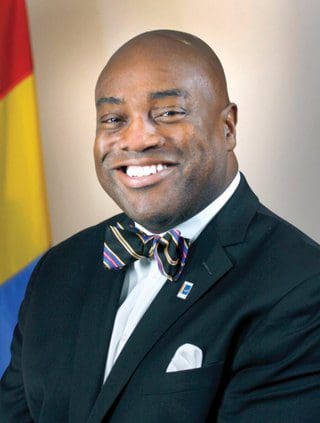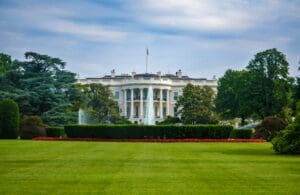Durham’s proposal to experiment with a type of universal basic income is moving forward.
Councilman Mark-Anthony Middleton recently announced a plan to implement a pilot program that will give select residents a guaranteed monthly income. The pilot could include providing 55 formerly incarcerated residents with a guaranteed income of at least $500 a month until the pandemic ends and the city’s economy recovers.
“After consulting with Durham community stakeholders, other American cities that have embarked on guaranteed income pilots, academic thought leaders, consultants, and city staff, we have made a determination to submit a proposal focusing on individuals that have been justice-involved and are returning to their community post incarceration,” Middleton wrote in an email to the INDY last week.
“These sisters and brothers very often face dual challenges in employment and housing due to stigma,” he added.
“Focusing on this population will allow us to help some of our most vulnerable residents and also provide insight into the efficacy of guaranteed income initiatives on targeted populations.”
Middleton attended virtual meetings with officials from Mayors for a Guaranteed Income and the Stockton Demonstration Project, groups with the goal of encouraging federal legislation for a universal basic income, as well as a meeting with scholars from the University of Pennsylvania. These meetings informed the council’s decision to include those recently released from incarceration; the scholars noted that the “55 participants could potentially have more informational value on the efficacy of the guaranteed income initiatives rather than a randomly selected universe.”
In January, Mayor Steve Schewel, a member of Mayors for a Guaranteed Income, announced that the Bull City was among 30 cities across the country under consideration for a guaranteed basic income for some residents.
Schewel asked Middleton and Councilman Pierce Freelon to lead Durham’s effort to develop a guaranteed income plan. The first phase of the pilot would likely run for one year. Middleton would like to see the project extend beyond a core group of 55 individuals.
“I plan to continue my engagement with corporate and philanthropic partners to supplement our expected $500,000 grant in the hope of conducting a pilot that will involve no less than 100 people,” said Middleton.
“As in all things, the amount of funding will determine the breadth of our reach.”
Last year, before the city council learned of the grant opportunity, Middleton said, he proposed a $2 million guaranteed basic income trial for Durham “as part of a multi-faceted comprehensive plan to address poverty, policing, and the root causes of our city’s gun violence issue.”
The proposal was derailed in part due to the economic toll the pandemic has had on the City’s coffers.
“It was gratifying to learn that what we talk about in our public square here in Durham was being noticed around the country and Mayors for Guaranteed Income came looking for us,” he said.
“Although we won’t get $2 million, the prospect of being able to put somebody else’s money where our municipal mouth is in the midst of a pandemic is beyond fortuitous.”
Middleton said on February 5 that the council had unanimously approved a resolution supporting Durham’s efforts to secure funds from Mayors for a Guaranteed Income, made possible by Twitter CEO Jack Dorsey, who announced in December that he had donated $15 million to the group. The funds could provide each of the organization’s 30 partner cities, including Durham, with up to $500,000.
The resolution states that Durham signed on to the Mayors for a Guaranteed Income pledge and is actively working with community partners.
City council members went on record in support of a guaranteed income, and the council concluded that it “supports ongoing, direct cash payments throughout the campaign and until our economy recovers.”
The resolution notes that even before the pandemic, nearly 40 percent of American households could not afford a $400 emergency.
Moreover, an already growing wealth gap that disproportionately impairs quality of life for women and people of color has been “dramatically exacerbated” by the pandemic.
The resolution notes that “American cities are laboratories of democracy,” and that mayors across the country have banded together “to address these inequities” and advocate “in favor of cashed-based guaranteed incomes.”
It also notes that the guaranteed payments have been more effective than unemployment benefits for families of color.
“The data show that another direct payment would increase Native American, Latinx/Hispanic, and Black family income by 4.1 percent, 3.9 percent, and 3.6 percent respectively, compared to 2 percent of household income for white families,” the resolution states.
The resolution refutes the idea that a guaranteed income is an incentive for hard-hit citizens to not work—“as demonstrated by the large number of poor people that work every day to provide for their families.”
Instead, the resolution explains, the intent is to codify “a national value that declares that there exists a floor beneath which we will allow no person to fall simply by virtue of their humanity.”
Middleton said the council intends to submit its application for the funding within the next two weeks, and that he anticipates launching the pilot by the end of March.
“I’m very, very, very confident of our chances to get the money to Durham,” Middleton added.
_____
Follow Durham Writer Thomasi McDonald on Twitter or send an email to tmcdonald@indyweek.com.
To see original article please visit: https://indyweek.com/news/durham/durham-city-council-member-mark-anthony-middleton-on-tuesday/




















